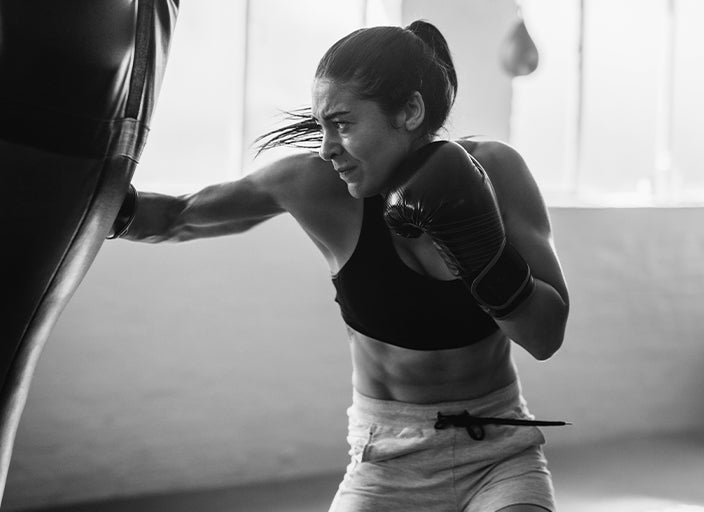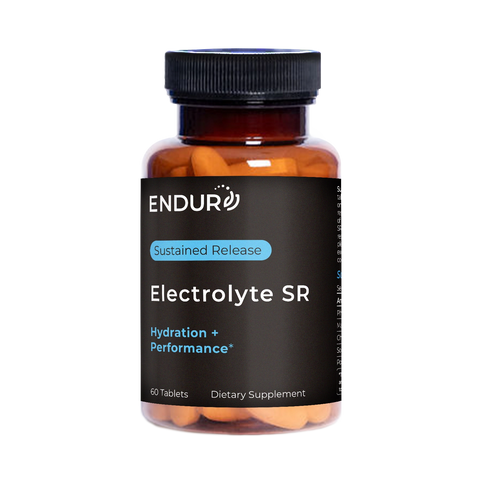Hydration is foundational to athletic performance, yet myths and misconceptions about how, when, and what to drink persist—even among experienced athletes. As the summer heat peaks and training intensifies, it’s more important than ever to separate fact from fiction. In this evidence-based guide, we’ll debunk the most common hydration myths, explain what the science actually says, and offer practical strategies to help you stay optimally hydrated—on and off the field.
Myth 1: “Drink Only When Thirsty”
The Myth:
Many athletes believe that thirst is always the body’s perfect hydration gauge: “If I’m not thirsty, I must be hydrated.”
The Reality:
While thirst is a reliable indicator for most people under most conditions, it’s not always perfect. Thirst is a lagging indicator—by the time you feel thirsty, your body may already be mildly dehydrated. Research shows that the thirst mechanism doesn’t always keep pace with fluid loss during prolonged or intense exercise, particularly in hot environments. This is especially true for older adults and during high-intensity or long-duration activities, when sweat losses can outpace thirst signals.
What to Do Instead:
-
Drink fluids at regular intervals during training and competition, not just when you feel thirsty.
-
Monitor other hydration cues, such as urine color (aim for pale yellow), body weight changes, and performance metrics.
-
For long events, develop an individualized hydration plan based on sweat rate and environmental conditions.
Myth 2: “All Sports Drinks Are the Same”
The Myth:
The sports drink aisle is crowded, and many athletes assume all products offer the same benefits.
The Reality:
Sports drinks vary widely in their electrolyte content, sugar levels, and absorption rates. Many popular sports drinks are loaded with added sugars—sometimes as much as 30-plus grams per bottle—which can spike blood sugar, cause gastrointestinal discomfort, and add unnecessary calories. These drinks may be designed to provide quick energy, but for most athletes, especially those concerned with stable energy and optimal hydration, the sugar content is a drawback rather than a benefit.
What Does the Science Say?
Recent research challenges the effectiveness of traditional sports drinks for pre-exercise supplementation. One recent study, published online in June 2025 in the Journal of the International Society of Sports Nutrition, found that pre-exercise supplementation with various sports drink compositions failed to provide significant performance benefits for endurance athletes compared to a placebo during exercise to voluntary exhaustion. Additionally, these drinks had no effect on carbohydrate or fat oxidation rates during exercise, suggesting no metabolic advantage for trained athletes under the conditions tested.
“These results suggest that, for trained athletes under the conditions tested, consuming these sports drinks before exercise does not enhance endurance performance or alter how the body uses carbohydrates and fats for fuel.”
It’s worth noting that even industry experts, including those affiliated with major sports drink brands, have acknowledged these findings, underscoring the need for athletes to look beyond sugar-laden drinks for effective hydration strategies.
Science-Backed Supplements: The Smarter Choice
Electrolyte supplements like Endur™ Electrolyte SR and its sports-certified version Replace® Electrolyte are specifically formulated to deliver the essential electrolytes you lose through sweat (sodium, potassium, magnesium, chloride, and phosphorous) without added sugars or artificial additives. These products are designed to provide hydration support so you can better retain the water you drink and promote muscle function and recovery. The grab-and-go tablets are ideal for endurance athletes who want to avoid the energy crashes and gut issues that can come with sugary sports drinks.*
What to Do Instead:
-
Read labels and choose supplements that match your specific needs and training demands.
-
For most workouts, especially those under an hour, water or a low-sugar electrolyte supplement is sufficient.
-
For longer, more intense sessions or when training in the heat, opt for a science-backed, sugar-free electrolyte supplement to maintain optimal hydration and performance.
Myth 3: “If You’re Thirsty, You’re Already Dehydrated”
The Myth:
Some coaches and athletes claim that thirst means you’re already behind on hydration.
The Reality:
Thirst is an early warning, not a sign of dehydration. While it’s true that the thirst mechanism can lag behind actual fluid needs during intense exercise, it’s not accurate to assume you’re dehydrated the moment you feel thirsty. The key is to use thirst as one of several cues, not the only one.
What to Do Instead:
-
Combine thirst with other indicators, such as urine color and body weight changes.
-
Don’t ignore thirst, but don’t wait for it to start drinking during long or hot workouts.
Myth 4: “You Can’t Drink Too Much Water”
The Myth:
“More water is always better”—a common misconception, even among seasoned endurance athletes.
The Reality:
Consuming excessive fluids without maintaining electrolyte balance can compromise normal hydration status. For this reason, it’s important to consume fluids in amounts that your body can efficiently process. This is especially important for athletes engaging in prolonged physical activity, as maintaining proper hydration and electrolyte balance over an extended period is critical to support normal muscle and nerve function.
What to Do Instead:
-
Avoid excessive water intake, especially during long events.
-
Use electrolyte-containing supplements to replace both fluids and sodium lost in sweat.
-
Monitor your fluid intake and listen to your body’s cues.
Myth 5: “Coffee and Tea Are Dehydrating”
The Myth:
Caffeine-containing drinks don’t count toward your daily fluid needs because they’re dehydrating.
The Reality:
Moderate consumption of coffee and tea does not cause dehydration. While caffeine has a mild diuretic effect, the water content in these beverages offsets it, making them legitimate contributors to your daily hydration.
What to Do Instead:
-
Feel free to count your morning coffee or tea toward your daily fluid intake.
-
Focus on total fluid consumption from all sources, not just water.
Myth 6: “Everyone Needs 8 Glasses of Water a Day”
The Myth:
The “8x8 rule” (eight 8-ounce glasses per day) is a one-size-fits-all solution.
The Reality:
Hydration needs are highly individual and depend on factors like body size, activity level, climate, and sweat rate. Some athletes may need much more, especially in hot weather or during intense training, while others may need less.
What to Do Instead:
-
Use body weight, sweat rate, and urine color as more accurate guides.
-
Adjust your intake based on activity, temperature, and personal needs.
Myth 7: “Sports Drinks Are Always Necessary”
The Myth:
Every workout requires a sports drink.
The Reality:
For most workouts under an hour, plain water is sufficient. Sports drinks are often marketed as essential, but many contain high levels of sugar and artificial ingredients that are unnecessary—and sometimes counterproductive—for most athletes.
Why Choose Electrolyte Supplements Instead?
Science-backed electrolyte supplements like Endur™ Electrolyte SR deliver targeted hydration support without any potential for a sugar rush or crash. These formulas are designed to replenish the key electrolytes lost in sweat, support muscle function, and enhance recovery, all while keeping your calorie and sugar intake in check.*
What to Do Instead:
-
Save electrolyte supplements for long, strenuous sessions or when training in hot/humid conditions.
-
For shorter or less intense workouts, stick with water or a low-sugar electrolyte supplement.
Myth 8: “Only Water Hydrates You”
The Myth:
Water is the only fluid that counts toward hydration.
The Reality:
Many fluids—milk, juice, coffee, tea, and even some foods—contribute to your hydration status. Electrolyte supplements can offer additional hydration support for athletes by replacing electrolytes lost in sweat and helping you retain the fluid you consume, without the drawbacks of added sugars or artificial flavors.
What to Do Instead:
Include a variety of fluids in your daily routine. Milk and chocolate milk, for example, are natural sources of key electrolytes—an 12-ounce glass provides an excellent source of calcium and a good source of magnesium and potassium, along with sodium, all of which are lost in sweat and are essential for hydration and muscle function.
-
Chocolate milk also provides protein and carbohydrates, making it a popular recovery beverage for athletes who want to replenish both fluids and nutrients after intense exercise.
-
Use science-backed electrolyte supplements strategically during and after intense or prolonged exercise, especially when you want to avoid added sugars or need precise dosing for endurance and recovery.
Myth 9: “Clear Urine Means You’re Perfectly Hydrated”
The Myth:
If your urine is clear, you’re optimally hydrated.
The Reality:
Urine color can be a good indicator of hydration status. Generally, pale yellow urine rather than clear urine is an indication that you are well-hydrated. For this reason, maintaining a light yellow urine color—similar to the color of lemonade—can be a helpful goal for supporting normal hydration.
Evidence-Based Hydration Strategies for Experienced Athletes
-
Individualize Your Hydration Plan:
Calculate your sweat rate by weighing yourself before and after workouts. Replace 100–150% of your fluid loss post-exercise, and adjust your intake for climate and activity intensity. -
Use Electrolyte Supplements Wisely:
For long-duration or high-heat sessions, choose a product that delivers sodium, potassium, magnesium, and other key electrolytes. Endur’s Electrolyte SR and Informed Sport Certified Replace® Electrolyte provide a complete, balanced formula—without sugar or unnecessary additives—designed to support hydration efforts, muscle function, and endurance.* -
Monitor Multiple Hydration Markers:
Don’t rely on thirst alone. Track urine color, body weight, and performance. If you experience unexplained fatigue, muscle cramps, or other activity-related issues, review your hydration strategy. -
Balance Fluids and Electrolytes:
Aim to support your body’s normal hydration status with a balanced approach to fluid intake and electrolyte replacement. Use electrolyte supplements, especially during long or hot workouts, to replenish what you lose in sweat. -
Plan for Extreme Conditions:
In July’s heat, increase your fluid and electrolyte intake to match higher sweat losses. Pre-hydrate before long sessions, sip fluids regularly during activity, and rehydrate with both water and science-backed electrolyte supplements afterward.
Conclusion: Hydration Truths for Peak Performance
Hydration is not about following one-size-fits-all rules or falling for marketing myths. It’s about understanding your body, your sport, and your environment—and responding with a smart, evidence-based plan. By busting these common myths and focusing on individualized, science-backed hydration strategies, you’ll set yourself up for optimal performance, faster recovery, and better health all year long.
Stay tuned for more hydration tips from the experts behind the Endur™ brand, and discover how our Electrolyte SR and Informed Sport Certified Replace® Electrolyte formulas can help you stay balanced, energized, and ready for any challenge—especially in the heat of summer.*
References:
Gandy J. Water intake: validity of population assessment and recommendations. Eur J Nutr. 2015;54 Suppl 2(Suppl 2):11-16. doi:10.1007/s00394-015-0944-8
Karpinski C, ed. Sports Nutrition Manual: A Handbook for Professionals. 6th ed. Academy of Nutrition and Dietetics; 2017.
Ketelhut S, Moehle M, Hottenrott L. Effect of different sports drink compositions on endurance performance and substrate oxidation: a randomized, double-blind, placebo-controlled crossover study in trained athletes. J Int Soc Sports Nutr. 2025;22(1):2516004. doi:10.1080/15502783.2025.2516004
Killer SC, Blannin AK, Jeukendrup AE. No evidence of dehydration with moderate daily coffee intake: a counterbalanced cross-over study in a free-living population. PLoS One. 2014;9(1):e84154. doi:10.1371/journal.pone.0084154
Thomas DT, Erdman KA, Burke LM. Position of the Academy of Nutrition and Dietetics, Dietitians of Canada, and the American College of Sports Medicine: Nutrition and Athletic Performance J Acad Nutr Diet. 2016;116(3):501-528. doi:10.1016/j.jand.2015.12.006
For more information on Electrolyte SR and to see how it fits into your summer training, visit www.endur.com or reach out to our team at customerservice@endur.com for personalized recommendations.
*These statements have not been evaluated by the Food and Drug Administration. This product is not intended to diagnose, treat, cure, or prevent any disease.


